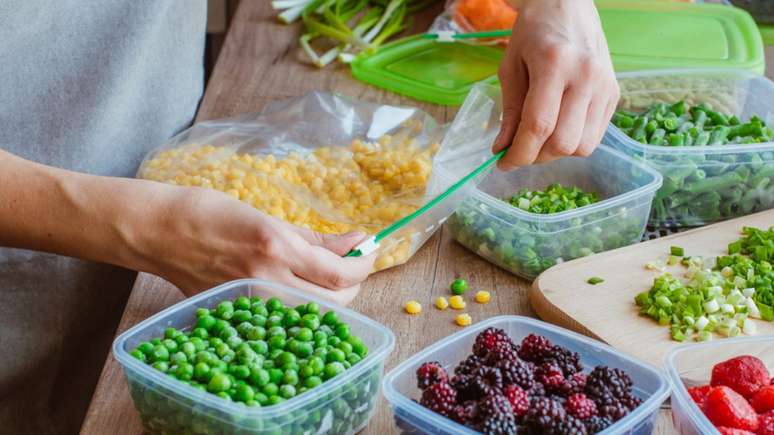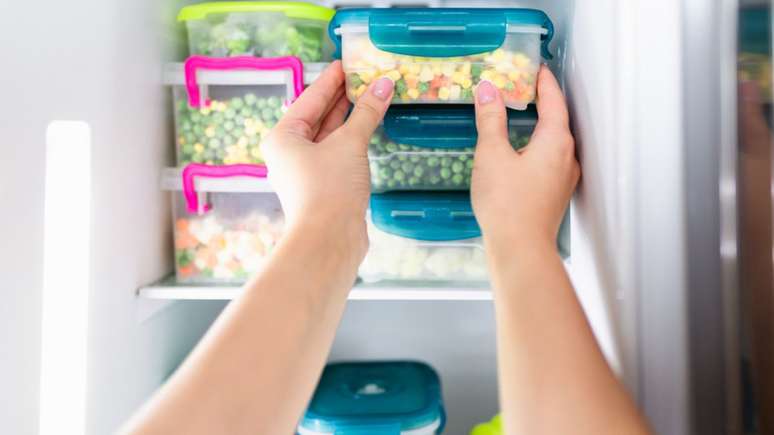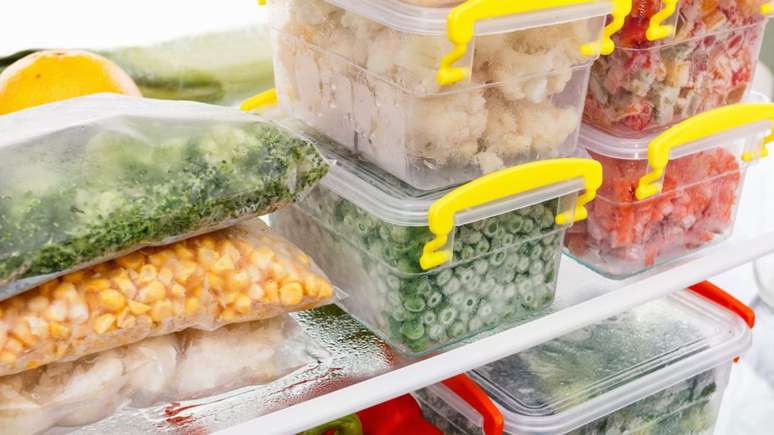Freezing food it is an excellent ally for those who want practicality in daily life and also for not wasting food. Furthermore, it can be a great option for those who want to eat healthier but don’t have time to be in the kitchen every day. Despite making life easier, frozen food needs a series of treatments. And to demystify this argument, we invite you to do so chef Marina Linberger, manager of the Cozinha de Gente Moderna project, has collected four valuable tips on whether or not to freeze food. According to the expert, the first taboo to break when it comes to frozen foods is just that quality. Marina explains that it really is possible to preserve the texture and flavor of foods that go into the freezer, without losing the juiciness of the meal. However, it is worth remembering that even frozen, these foods have a shelf life. “It is not because a food is frozen that its validity will be eternal. The bacteria and microorganisms present in this food do not die, they fall asleep only with the temperature. So its proliferation has slowed down quite a bit, but there comes a time when this food will win,” says the cook. After all, Marina Linberger remembers it not all foods can withstand the freezing process. That’s why the chef has developed an exclusive method that you will know from now on!

The right packaging is also important when freezing – Photo: Shutterstock
Freezing food with a lot of fat
Foods with a lot of fat do not freeze well. An example is milk cream, which has fat and water in its composition, two substances that do not mix unless they are in emulsion. “When you freeze foods like this, the water turns into ice crystals and when it’s thawed, this water melts, releasing the fat. This gives the food a sculpted look,” he explains. therefore, the cook comments that, if you want to freeze recipes that use cream, like stroganoff, for example, the recommendation is that the your base is frozen (meat with mushrooms and broth). When it’s time to reheat, when bubbles form, you can add the cream.
Feed plenty of water
Another group are foods with lots of water, such as tomatoes, courgettes, salads in general and white cheeses, are foods that do not support freezing. This is because, upon defrosting, that water will melt away and remove all texture from the food. However, tomatoes can be frozen under one condition: if they are in the form of a sauce. Cabbage is also an exception: it can be frozen already washed, chopped and raw. But when it’s prep time, it goes from freezer to skillet, braising super fast.
frozen rice
According to the chef, cooked rice grains can be stored in the freezer without losing flavor and texture for up to three months. But beware: leftover rice cannot be frozen, as it has already been mixed. The ideal is to prepare it with the intention of freezing it. To freeze rice, the ideal is prepare the recipe in large portions. Once the rice has finished its cooking process, when all its steam has gone out, the ideal is to freeze it. The secret when defrosting is to drip a little water on it to prevent it from becoming rubbery or dry, reveals Marina.
Advantages of freezing food

Those who freeze food spend less time in the kitchen – Photo: Shutterstock Freezing convenience foods has many advantages. In addition to being practical and optimizing the time of the cook, as it avoids spending hours in the kitchen every day, it is also an excellent option for those who bring a packed lunch to eat outdoors. After all, everything is ready! Those are reason enough to freeze ready-made food more often, right? If you If you enjoyed this content, be sure to share it so more people learn how important it is to freeze food.

Source: Terra
Ben Stock is a lifestyle journalist and author at Gossipify. He writes about topics such as health, wellness, travel, food and home decor. He provides practical advice and inspiration to improve well-being, keeps readers up to date with latest lifestyle news and trends, known for his engaging writing style, in-depth analysis and unique perspectives.


-sl6oy2p06omu.png)




![Such a great sun in advance: Elizabeth’s Terrible Accidental Victims … which Waiting for You Week until August 25, 2025 [SPOILERS] Such a great sun in advance: Elizabeth’s Terrible Accidental Victims … which Waiting for You Week until August 25, 2025 [SPOILERS]](https://fr.web.img6.acsta.net/img/d0/c4/d0c4d9256b5997c98008a65d7a43177e.jpg)
